In the world, more than 300 million people are living as migrants and it is important to understand how cultural transition from the home country to the host country affects adaptation of migrants.
As we know, identity is a very complex concept and it is subjected to constant change. A change in a person’s environment, such as immigration, can cause identity crisis. On the other hand, changing your environment is a way to change your life.
When a person has a strong sense of identity (s)he usually feels good and balanced. Because of that people need to actively examine and question identity issues (e.g. beliefs, values, aspirations).
Immigrants who have higher self-esteem and feel more confident in who they are, are more likely to think critically about their own and others’ views and are also willing to adapt their identities to suit their new environment.
Cross-cultural difficulties happen, when immigrants avoid considering alternative viewpoints and are unwilling to consider adapting new identities. There is a risk of identity confusion with immigrants who are more resistant to change and prefer to follow traditions and social norms of their heritage culture.
Cultural changes of identity can be stressful and result in problems with self-esteem and mental health. Identity has strong influence in building up social capital and increasing health and wellbeing of communities.
Part of our identity and the images we have of ourselves are based on our social status.
The loss of social status and being in an environment where nobody knows us and does not know what we’ve been and who we are is one of the reasons for identity crisis of immigrants. Norms, values and judgments in a new environment can be even opposite from the home country.
Therefore, the process of adaptation to the new environment is not an easy process and in many cases, it takes time.
In a way, the immigrant is sometimes ´punished´ by the reaction of the host society if his social behavior does not match with the norms of the host society. So, we can say that attitudes and behavior of the host society play a major role in integration of immigrant groups.
It is necessary for an immigrant to adapt into the society (s)he is living in and to feel belonging to the group. The immigrant can also rebuild his personal and cultural identity. Also, the identity of an immigrant is likely to change when receiving cultural ideals and when interacting in the new social environment.
For increasing multiculturalism and adaptation of immigrants in Finland, we must offer wide opportunities for people to communicate with each other, to learn and to grow, to participate in and to be able influence decision-making. The aim of integration is to have immigrants participating in society, in the same way as everyone else.
Minulla on ikävä 
kotikaupunkiani.
Minulla on ikävä
äitiäni,
kun muistan talvipäivän,
jona hän otti
minut vastaan koulusta.
Hän laittoi
kodin edustalle maton,
millä söimme yhdessä.
Minulla on ikävä,
kun muistan äitini
kädet kampaavan
hiuksiani.
Minulla on ikävä,
kun muistan
äidin huivin tuoksun.
Minulla on ikävä,
kotikaupunkini
sinistä taivasta,
kun nukuin yöllä ulkona,
ja näin sen tähdet.
Minulla on ikävä,
kun muistan
vanhan miehen,
joka myi meille
joka päivä
tuoksuvaa jogurttia.
Minulla on ikävä,
kun muistan
pienen puutarhan
talomme keskellä.
Kun istun
kotini pöydän ääressä,
katson ikkunasta ulos,
kysyn itseltäni,
mitä minä
täällä teen,
kun on niin ikävä.
Kysyn vielä, missä
missä olen
ja minne minä menen?
Minulla on ikävä
>>>>>||||>>>>
Kuinka paljon
vieraassa maassa
olen vieraantunut myös itsestäni.
Olen muukalainen.
Pysähtynyt liike
melun tuntu
on kadonnut.
Olen vieraassa maassa
olen tullut vieraaseen maahan.
